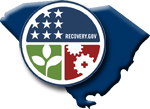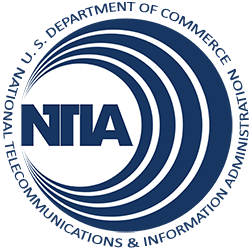Broadband’s ability to expand educational and employment opportunities is especially meaningful for Americans who are deaf or hard of hearing, a community that faces unique challenges in education and that suffers from a rate of unemployment much higher than the national average. Communication Service for the Deaf, Inc. (CSD) intends to expand broadband adoption among people who are deaf and hard of hearing and provide them with online tools to more fully participate in the digital economy. The project proposes to employ a combination of discounted broadband service and specialized computers, technology training from an online state-of-the art support center customized to the community’s needs, public access to videophones at anchor institutions from coast to coast, and a nationwide outreach initiative. Thousands will gain online access to all the Internet has to offer, including sign language interpreters, captioned video services, and other content and functionalities designed especially to advance their educational, employment, and healthcare interests.
South Carolina

| Grantee | Total Award | Type |
|---|---|---|
| Communication Service for the Deaf, Inc. | $14,988,657 | Sustainable Adoption |
| Connected Nation (South Carolina) | $3,979,832 | Broadband Data & Development |
| County of Oconee | $9,604,840 | Infrastructure |
| One Economy Corporation | $28,519,482 | Sustainable Adoption |
| South Carolina State Board for Technical and Comprehensive Education | $5,903,040 | Public Computer Centers |
| University Corporation for Advanced Internet Development | $62,540,162 | Infrastructure |
Project Components
Technical Assistance:
Connect South Carolina will conduct county-level research in the second year of the program and state level research in the third, fourth, and fifth years to identify and track the barriers to broadband access and adoption across the state. The results and conclusions of these surveys will be submitted to peer review and will be available for use by all stakeholders in the state.
Local Regional Technology Planning Teams:
Working under the direction of the Governor’s Office, and in coordination with the South Carolina Broadband Advisory Committee, Connect South Carolina will form 10 regional technology planning teams which align with the state’s Council of Governments as well as integrate the Cooperative Extensions of Clemson University and South Carolina State University. The collaboration and coordination within this framework will help to establish specific technology adoption goals, recommendations, and action plans across community sectors with primary focus on the areas of greatest need. These plans will be assimilated at the state level to support the ongoing state strategic planning process funded through the initial SBDD award.
Data Collection, Integration, and Validation:
This project was originally funded for broadband planning activities and two years of data collection. In September of 2010, this project was amended to extend data collection activities for an additional three years and to identify and implement best practices.
The need for broadband services among community anchor institutions in rural, economically distressed Oconee County, South Carolina, has escalated significantly beyond current resources, hampering economic growth in the region. Oconee FOCUS, a public-private partnership between the county, several local small businesses, and the Eastern Band of Cherokee Indians, proposes to build a fiber-optic middle-mile network to serve community anchor institutions in the rural parts of the county and connect with high-speed networks across the state. The project aims to improve the Oconee region’s attractiveness to employers, promote public safety and health, and enhance educational opportunities by enabling distance learning, video conferencing, and remote research.
The 21st Century Information and Support Ecosystem project proposes to implement a comprehensive program of computer training, wireless Internet access, broadband awareness marketing, and online content and applications to residents of 159 affordable and public housing developments and low-income communities in 50 cities and towns across 31 states and the District of Columbia. The project plans to implement four principal programs: training 2,500 youth to become “Digital Connectors” who will then provide digital literacy training to others in their communities; deploying localized broadband networks in public housing developments; developing online content and applications aimed at low-income, low-literacy audiences.
The SC Reach for Success project proposes to expand the capacity of 51 public computer centers and create 19 new computer labs at the South Carolina Technical College System’s 16 member community colleges. The college system is the state’s largest higher education system, with 114,000 degree-seeking students and 128,000 continuing education students. Of these students, almost half receive federal Pell Grant assistance and 37 percent are minorities. This project will open these community college computer centers to the general public for the first time and plans to nearly double the number of workstations to approximately 3,260, which will accommodate an increase in users per week from 17,000 to 38,000. The project also intends to offer laptop computers for students to checkout, allowing them to use new and expanded WiFi hot spots on campus for online research and learning applications.
As part of a longstanding project to connect essential community anchor institutions across the country, and facilitate closer collaboration and long-term benefits for education, research, healthcare, public safety, and government services, the University Corporation for Advanced Internet Development (UCAID) proposes a comprehensive 50-state network benefitting approximately 121,000 community anchors. The project proposes a large-scale, public-private partnership to interconnect more than 30 existing research and education networks, creating a dedicated 100-200 Gbps nationwide fiber backbone with 3.2 terabits per second (TBps) total capacity that would enable advanced networking features such as IPv6 and video multicasting. The project plans to connect community anchors across all disciplines into virtual communities with shared goals and objectives, including colleges, universities, libraries, major veterans and other health care facilities, and public safety entities, with additional benefits to tribes, vulnerable populations, and government entities.
